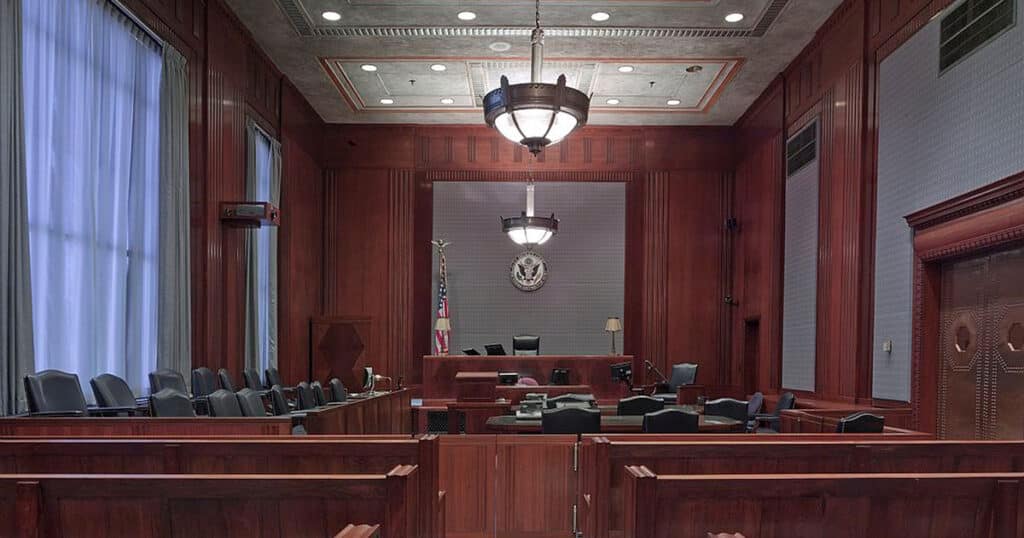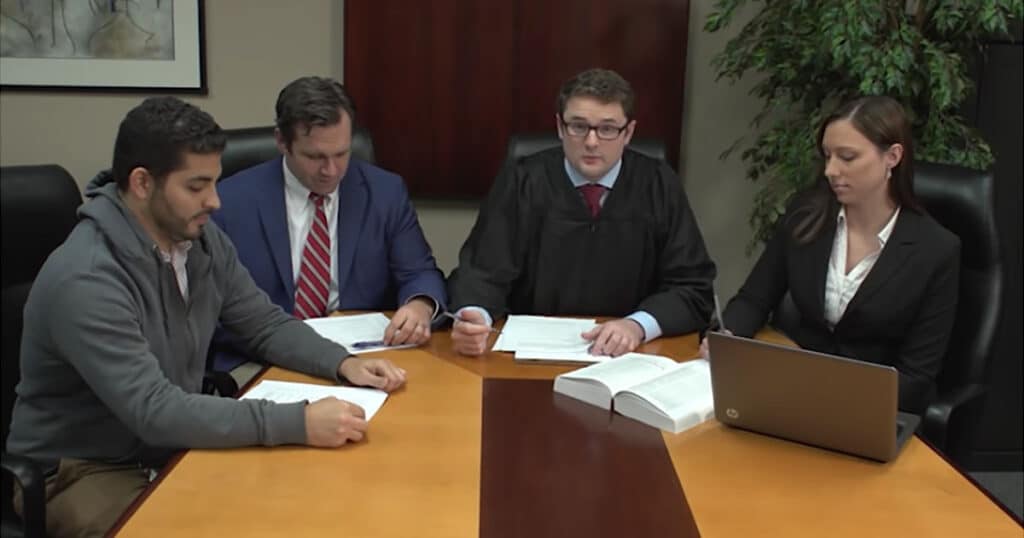The Hearing
Home » The Hearing
If your initial application and the reconsideration stage for social security disability insurance (SSDI) or supplemental security income (SSI) benefits are denied, which is very common, you should contact our disability advocacy team at Citizens Disability to make your appeal.
If you have proper representation, your appeal is roughly 40 percent more likely to be approved. Keep in mind you must be eligible to receive the benefits for the hearing to be a success in the end. As long as you qualify, the hearing of the appeals process with a professional can go much more smoothly.
Below, we will explain how hearings work and why they happen. We also have a video of an example hearing, to demonstrate what happens in a hearing and to show you that a hearing in front of an administrative law judge shouldn’t be frightening or worrisome.
The Appeals Process
If you are denied your SSDI and SSI benefits during the initial application process and the reconsideration stage, don’t worry – you are not alone. Only about 30 percent of applicants are approved during the initial application stage and only about 15 percent are approved during reconsideration. This should not deter you from continuing in the appeals process. Unfortunately, because of the way the system works, it takes patience, dedication and determination to fight for the benefits you deserve and have every right to receive.
How an ALJ Hearing Works
An administrative law judge (ALJ) will be responsible for presiding over the official hearing process. These proceedings are not open to the public. If you bring family, friends or others to support you, they will have to remain in the waiting room. Our advocates will be permitted to assist you in the hearing. You will likely have the hearing in a conference room if you attend in person. It is also possible to conduct this hearing via video conferencing if you cannot reach the SSA facility for the hearing in person.
During the hearing, you or our team will present your case in front of the ALJ. You will have the opportunity to use witness testimony and medical experts at this stage of the appeals process. The judge may ask you questions about your disability, the reasons it limits your ability to work and the way in which the disability occurred. A vocational expert may also be present to ask you questions. Our advocates will be there to help you through the questions part of the hearing.
What Happens at the Hearing
Each hearing will be unique in that the reasons for the disability and the denial of your application and reconsideration will be different. However, you can expect some parts of the process to remain the same – and we have an example video to show you what it’s like.
The questions will be relatively standard, such as your education, employment, medical treatment and other issues that have impacted your life. You will be able to have an advocate present to assist you in delivering your responses and documents, and your advocate will work to ensure that you are given the fairest hearing possible and be allowed to tell your story.
You will be able to present expert witnesses and medical experts to support your disability and to verify that your disability limits your capacity to work. The ALJ might ask you directly if you would like to make any statements or additional comments.
After The Hearing
It might take up to 60 days or more before you are notified of the decision from the judge, so prepare yourself for this timeframe. Our team will stay on top of the decision and inform you the moment it is decided.
If your hearing does not result in an approval, don’t worry. This should not deter you, as denials are not uncommon, but they are not the end of the line. In more cases than not, to win benefits it takes lots of persistence. This may require sending your case to an appeals council, followed by the federal court.
Again, do not let this process intimidate or frighten you. Tens of thousands of people go through this process each year. With our help, you will greatly increase your chances for success at some point in the appeals process. And remember that once you finally do receive approval, you will be very likely be entitled to benefit back pay for all the time you spent on the appeals.
More Important Information about The Application Process
Since 2010, Citizens Disability has been America’s premier Social Security Disability advocate. Our mission is to give a voice to the millions of Americans who are disabled and unable to work, helping them receive the Social Security Disability benefits to which they may be entitled. We have helped tens of thousands of individuals with their SSDI claims. Your success is our mission.
It is easy to get started.
It is easy to get started. No upfront costs – You only pay if we win!
Oops! We could not locate your form.









